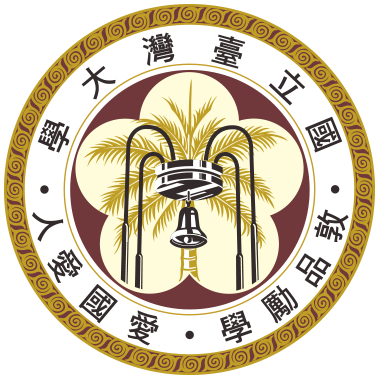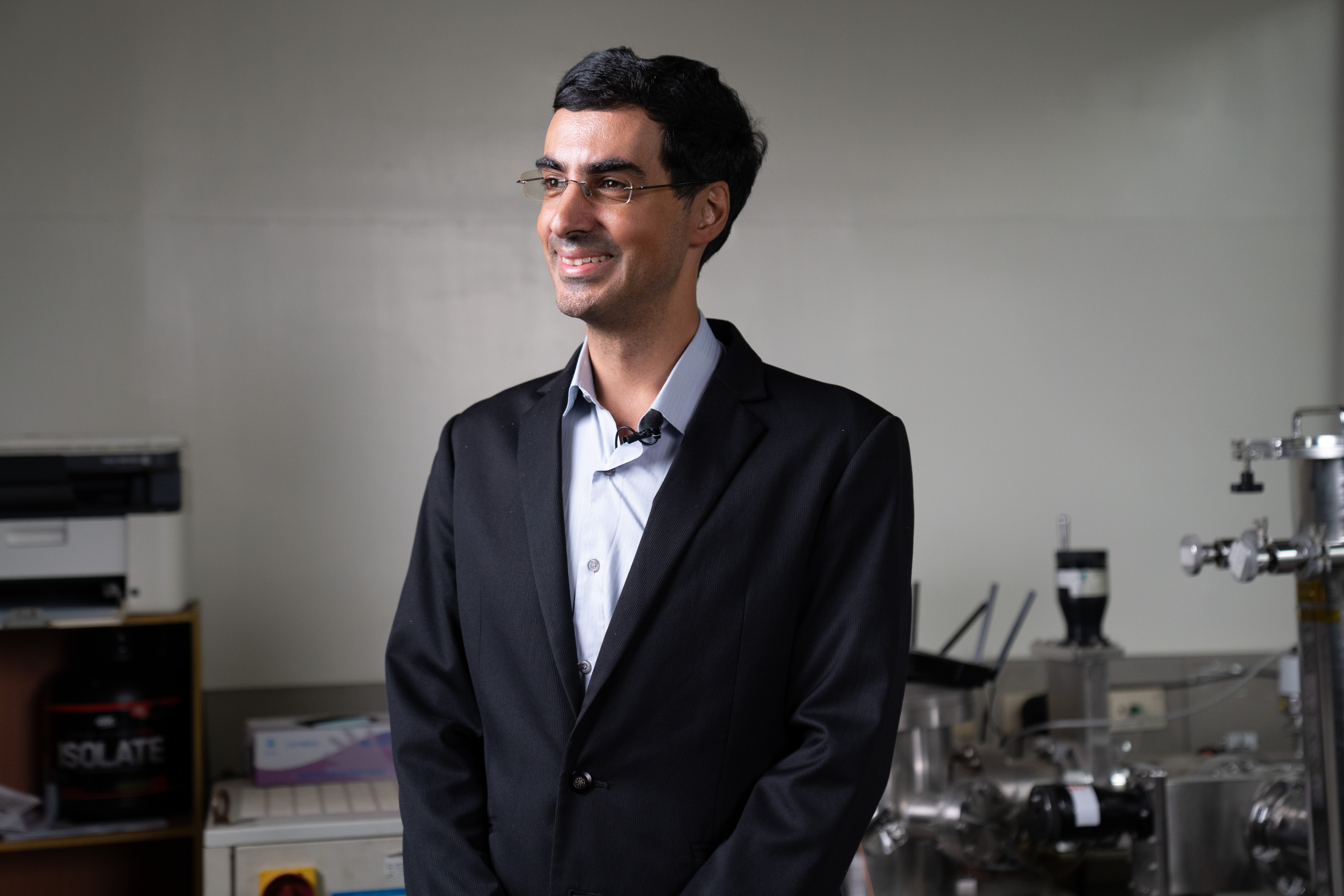
Using his passion for applied physics, Mario Hofmann wants to leave the world a better place than he found it. From his early days studying in Germany to pursuing his PhD at the Massachusetts Institute of Technology, Mario was always searching for the connection between research and its real-world applications. His quest for scientific knowledge led him to explore research institutions around the world, eventually taking up a professorship at National Taiwan University. Through his academic journey, he discovered how diversity drives research, developed a passion for leading students, and explored the potential of nanostructures to change our world.
Gaining a Foundation in Applied Physics
Mario Hofmann grew up in the city of Dresden, Germany, which is comparable in size to Tainan. But his universities studies took him to the small town of Ilmenau, where the local University of Technology (Technische Universität Ilmenau) was one of two universities in Germany with an applied physics program. “I felt I wanted something that wasn’t pure physics, but has a connection to the real world,” Mario said. Even as a young scholar, Mario knew he wanted to do something that had an impact on society.
During his master’s studies in Ilmenau, he took advantage of the university’s internship program and interned at the Massachusetts Institute of Technology. There he found himself surrounded by likeminded scholars where were passionate about research and excited about pushing the envelope. “I could see myself doing that for the rest of my life,” he said. Mario had found a place where his passion could thrive.


He decided to pursue his doctoral studies at MIT, where he joined the research group led by Professor Mildred S. Dresselhaus, known as the “queen of carbon.” Their research focused on carbon nanostructures and their applications in electronics. Noticing the differences research culture in both Germany and the US, Mario’s interest was piqued. He wanted to learn how labs function in other countries as well.

 From the World to Taiwan
From the World to Taiwan
Becoming a globe trotter, Mario visited research labs in the University of Tokyo, Brazil, and England. “Culture is something you cannot separate from research,” he discovered, “Culture drives research.” When he ended up in Taiwan at NTU, he found the local research mentality to be an exciting combination of Asian and Euro-American systems. It was well structured and put an emphasis on individual responsibility, well allowing the freedom to explore new ideas no matter your position.
Left with such a positive impression of NTU, he decided to return here for his postdoctoral fellowship, joining the research team led by Professor Yang-Fang Chen(陳永芳). He found the breadth of ideas as diverse as the research approaches. “The research here is as diverse as the background of the professors,” he said, “There is a heterogeneity here that wouldn’t have in other research institutions.” Mario observed how Taiwan benefits from the diversity and competition of ideas, as scholars with different backgrounds come together each with their own way to explore a problem.
Following his postdoc, Mario took an assistant professorship at National Cheng Kung University (NCKU), teaching there and living in Chiayi for five years before returning to NTU as a full professor.


Leading a Research Team at NTU
While his research at NCKU focused on making new kinds of nanostructures, when he returned to NTU he shifted his focus to figuring out how to use these nanostructures for specific applications. In particular, his team is trying to understand how nanostructures can be put together to make emergent behaviors. “When millions of ants collaborate, they form a complex system that is greater than the sum of its parts,” said Mario, “This phenomenon is called emergence, and we are trying to understand how nanostructures can be made to show emergent behavior.”
Mario’s research team (MYLab) is comprised of about 25 students from five different countries. “The caliber of students at NTU is very impressive,” said Mario, “Not only are they intelligent, but their high motivation levels make working with them a genuine pleasure.” The diversity of student backgrounds also enriches the research environment, as each student has unique ideas on how to tackle problems.
As a leader, Mario gives his students the freedom to explore research questions in their own way. “We learn how to be independent scientists under his guidance,” said Ting-Chun Huang, a 5th year PhD student working in Mario’s lab. Karthika Vijayan, a 4th year graduate student, said “Every project you come up with is totally your project and you can handle it anyway you would like.” The students also commented how the diversity of the lab encourages community and helps move their research forward, as the team works together displaying their own emergent behavior.
In his six years as a professor here, Mario has been impressed with NTU’s commitment to fostering research. The environment encourages professors and students to collaborate, and the funding is patient and committed. “NTU stands shoulder to shoulder with renowned institutions like MIT or Tokyo University,” said Mario, “In certain aspects, it even surpasses them.”

Appreciating the Diversity of NTU and Warmth of Taiwan
Since Mario first came to NTU as a postdoc in 2011, he has noticed how it has become much more internationalized. “There are tangible efforts to make the environment more welcoming to foreign researchers and visitors,” he said. Meetings are routinely conducted in English and the staff is multilingual. In return, this makes the culture around the university increasingly vibrant and diverse.
Outside campus bounds, Mario is consistently amazed by the warmth of Taiwanese people. “Random strangers will go out of their way to help you,” he said. To him, one representative aspect of Taiwanese culture is breakfast stores, which serve customers as they head to work in the early morning. “People wake up in the middle of the night and work hard to make your day,” he said, “You feel that kind of warmth and deliciousness.”
Mario also commented on the safety and strong sense of community in Taiwan. “That’s why we felt Taiwan is a great place to raise our kids,” he said, telling us about his family life, “Our two boys are enjoying the simulating environment in and around NTU.” They often come to the soccer field and find students to play with together.
Taiwan’s natural beauty is also a highlight for Mario and his family. In Chiayi, they lived by banana plantations at the foots of mountains. “I’d like to invite foreign scholars to visit Taiwan and experience the amazing natural beauty and equally amazing people here,” he said, “As long as you have a sense of adventure and an open mind, you will make unforgettable memories in Taiwan.”



